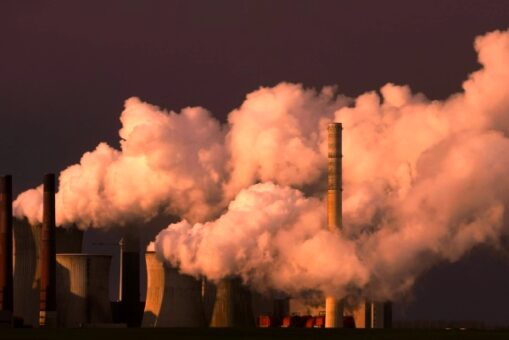KARACHI: Sindh Environmental Protection Agency (SEPA) has taken major steps to control industrial and vehicular emissions and retain 40 percent improvement in air quality.
The air quality of Karachi city has improved by 40 percent after imposition of lockdown to contain spread of COVID-19.
In this regard, SEPA issued directives to all industrial associations to conduct air quality monitoring in their industrial areas to check air quality degradation and plant saplings in huge number in and around their factories.
Industries have been asked to submit their tree plantation plan within one week into the office of SEPA.
Industries have also been directed to improve the conditions of their buses of shuttle service to control their air emissions and take practical measures to facilitate smooth plying of vehicles in and around their factories.
Moreover, SEPA is also re-launching its vehicular emission control campaign throughout the city to fine/penalize smoke-emitting vehicles with the help of traffic police.
In this regard an emergency meeting of all industrial associations of the city including Federal B Area, North Karachi, SITE, and Super Highway was held under the chairmanship of Director General SEPA Naeem Ahmed Mughal at the office of SITE Association.
The meeting was attended by Sulaiman Chawla President SITE Association, Shaheen Ilyas President Super Highway, Nasim Akhtar President North Karachi Industrial Association, Noman Yaqoob President Landhi Association, Abdullah Abid F.B.Area Industrial Association, Sheikh Umer Rehan President Korangi Association of Trade and Industry, Naveed Shakoor President Bin Qasim Association besides prominent industrialists Zubair Motiwala, Salim Pareekh and Javed Balwani.
Representatives from SEPA were Director Regional Office Karachi Aashiqui Langha, Deputy Directors Waris Gabol and Imran Sabir besides DG SEPA.
Addressing the meeting, the DG SEPA Naeem Ahmed Mughal said that for the vigorous enforcement of environmental laws all necessary measures are being taken by the environmental watchdog on priority basis.
He informed the participants of the meeting that SEPA had conducted a comparative study of air quality of Karachi prior to lock-down and during the lock-down; which revealed a 40 per cent improvement in air as a result of lock-down.
He pointed out that deteriorating air environment is equally a matter of grave concern for all of us and its control is possible with the collective efforts of all stakeholders including industries and vehicle owners/transporters.
He further said that to improve the air quality in the city all the industrial associations should start beautification campaigns at the major roundabouts in their areas along with plantation at the open spaces to improve the air quality parameters.
DG SEPA further directed that all the industrial associations should conduct an air quality study in Karachi to analyze the present air quality with regard to its improvement.
He also underscored the need of environment-friendly transport for commuting the industrial workers to help mitigate their air emissions.
The DG SEPA specifically directed for the proper disposal of solid waste being generated by the industries which includes both hazardous and non-hazardous industrial waste.
“Wastewater treatment plants should be installed as per the directives of Water Commission and in case of any negligence on this score, SEPA will take stern action’, he warned.
He further said that the culprits who are responsible for the burning of solid waste in any area will be dealt with iron hand. SEPA simply needs cooperation of public in this regard to complain us as and when any such incident occurs in their area.
At the end, he vowed to provide technical assistance to industries with regard to industrial pollution control.
It may be recalled that according to data collected in April 2020 during the lock-down by SEPA from different locations of six districts of Karachi the average particulate matter 2.5 (PM 2.5) – the most lethal and stubborn air pollutant – was improved by 39 percent as compared to the same data taken from 76 locations of the city in February 2020 before the lock-down. Likewise, the noise level of the city was also improvement by 19 percent during the lock-down.
The district-wise details of the data revealed that air quality of districts Central, East, South, West, Malir and Korangi was improved by 8, 61, 40, 37, 25 and 54 percent respectively while an improvement in the noise level of Central 42, East 20, South 15, West 17, Malir 2 and Korangi 26 percent occurred during the lock-down as compare to before lockdown.
